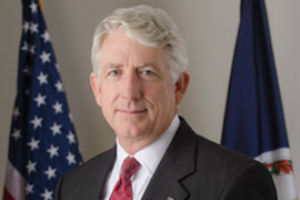
A nationwide task force of state attorneys general will work to update the national and international approach to analyzing the effects of pharmaceutical mergers.
The multistate working group, chaired by the attorneys general of California, Pennsylvania, and Wisconsin, will report its findings to the FTC as part of its “Reimagining Pharmaceuticals Initiative.”
“Rising prescription drug prices affect all Virginians, and I am proud to be a part of this effort to re-examine how pharmaceutical mergers are analyzed in order to prevent more consolidation in the pharmaceutical industry,” said Virginia Attorney General Mark Herring, who announced today that his office will be joining the multistate working group.
“Virginia and other states have a valuable role to play in antitrust enforcement and reviewing mergers and I look forward to sharing our insights with the state task force,” Herring said.
The FTC initiative taps expertise from competition authorities with whom the FTC cooperates frequently, as well as others with relevant experience, to ensure the most effective enforcement in these crucial markets. The goal of this initiative is to identify concrete and actionable steps to review and update the analysis of pharmaceutical mergers.
This project will ensure that FTC investigations include fresh approaches that fully analyze and address the varied competitive concerns that these mergers and acquisitions raise.
“Given the high volume of pharmaceutical mergers in recent years, amid skyrocketing drug prices and ongoing concerns about anticompetitive conduct in the industry, it is imperative that we rethink our approach toward pharmaceutical merger review,” said FTC Acting Chair Rebecca Kelly Slaughter. “Working hand in hand with international and domestic enforcement partners, we intend to take an aggressive approach to tackling anticompetitive pharmaceutical mergers.”
Among the questions to be considered are:
- How can current theories of harm be expanded and refreshed?
- What is the full range of a pharmaceutical merger’s effects on innovation?
- In merger review, how should we consider pharmaceutical conduct such as price fixing, reverse payments, and other regulatory abuses?
- What evidence would be needed to challenge a transaction based on any new or expanded theories of harm?
- What types of remedies would work in the cases to which those theories are applied?
- What have we learned about the scope of assets and characteristics of firms that make successful divestiture buyers?










